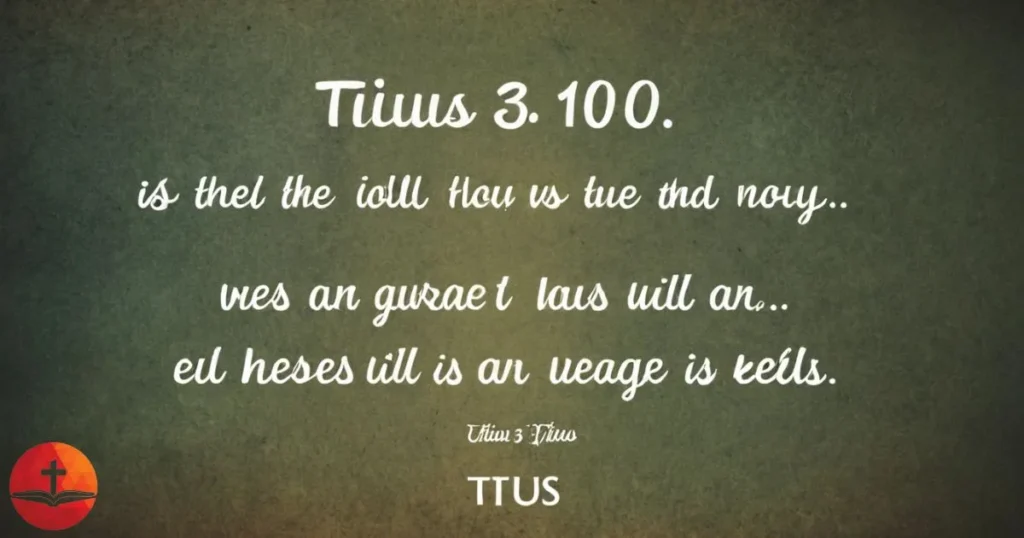“Guidance from the Scriptures: Bible Verses on Walking Away from Someone”
Walking away from someone, when due to a toxic relationship, a need for personal growth, or a change in life circumstances, can be a challenging and emotional decision.
The Bible provides guidance and wisdom for making such difficult choices, emphasizing principles of love, self-respect, and discernment.
This article explores key Bible verses that offer comfort and direction when you need to step away from a relationship or situation.
1. Proverbs 13:20
“Walk with the wise and become wise, for a companion of fools suffers harm.“

Choosing friends and companions wisely is crucial; sometimes walking away from harmful relationships is necessary for personal growth and protection.
2. Matthew 10:14
“If anyone will not welcome you or listen to your words, leave that home or town and shake the dust off your feet.“

Jesus advises moving on from those who do not accept or value your presence, indicating that it’s sometimes best to walk away.
3. 2 Timothy 3:5
“Having a form of godliness but denying its power. Have nothing to do with such people.“

This verse suggests avoiding those who appear godly but lack genuine faith and integrity, guiding you to walk away from superficial relationships.
4. 1 Corinthians 15:33
“Do not be misled: ‘Bad company corrupts good character.’“

The influence of negative people can affect your character and values, and walking away from such company is often necessary to maintain your integrity.
5. Psalm 1:1

“Blessed is the one who does not walk in step with the wicked or stand in the way that sinners take or sit in the company of mockers.“
Avoiding those who engage in wickedness or mockery is advised, highlighting the importance of separating from detrimental influences.
6. Proverbs 22:24-25
“Do not make friends with a hot-tempered person, do not associate with one easily angered, or you may learn their ways and get yourself ensnared.“
Avoiding relationships with those who are prone to anger can prevent you from falling into similar behaviors and traps.
7. Proverbs 4:14-15
“Do not set foot on the path of the wicked or walk in the way of evildoers. Avoid it, do not travel on it; turn from it and go on your way.“
This passage emphasizes avoiding paths that lead to negative outcomes, which can include walking away from harmful relationships.
8. Romans 16:17
“I urge you, brothers and sisters, to watch out for those who cause divisions and put obstacles in your way that are contrary to the teaching you have learned. Keep away from them.“

Avoiding individuals who create divisions and obstacles to your spiritual growth is advised.
9. Titus 3:10

“Warn a divisive person once, and then warn them a second time. After that, have nothing to do with them.“
This verse suggests a clear boundary with those who cause division, indicating that walking away after repeated warnings may be necessary.
10. Galatians 5:9
“A little yeast works through the whole batch of dough.“

Even a small amount of negative influence can corrupt a larger group, advising you to walk away from such influences to protect yourself and others.
11. Matthew 18:15-17

“If your brother or sister sins, go and point out their fault, just between the two of you. If they listen to you, you have won them over. But if they will not listen, take one or two others along, so that ‘every matter may be established by the testimony of two or three witnesses.’ If they still refuse to listen, tell it to the church; and if they refuse to listen even to the church, treat them as you would a pagan or a tax collector.”
This process shows that if reconciliation fails, it may be appropriate to distance yourself from someone who refuses to listen and change.
12. 1 John 2:19
“They went out from us, but they did not really belong to us. For if they had belonged to us, they would have remained with us; but their going showed that none of them belonged to us.“
This verse reflects that separation from those who do not genuinely share your values or beliefs can be a sign of necessary distancing.
13. Proverbs 18:19
“A brother wronged is more unyielding than a fortified city; disputes are like the barred gates of a citadel.“
This proverb highlights the difficulty of repairing broken relationships, suggesting that sometimes walking away is the best course.

14. Ecclesiastes 3:1
“There is a time for everything, and a season for every activity under the heavens.“
Understanding that relationships have seasons and knowing when it’s time to move on can be crucial for personal growth.
15. 2 Corinthians 6:14
“Do not be yoked together with unbelievers. For what do righteousness and wickedness have in common? Or what fellowship can light have with darkness?“
This verse advises separating from relationships that do not align with your values and faith.
16. Proverbs 16:29
“A violent person entices their neighbor and leads them down a path that is not good.“

Avoiding individuals who lead you away from good paths and values is necessary for maintaining a positive direction in life.
17. 1 Corinthians 5:11
“But now I am writing to you that you must not associate with anyone who claims to be a brother or sister but is sexually immoral or greedy, an idolater or slanderer, a drunkard or swindler. Do not even eat with such people.“
This guidance emphasizes the need to avoid close relationships with those whose behavior is contrary to Christian teachings.
18. Ephesians 5:11
“Have nothing to do with the fruitless deeds of darkness, but rather expose them.“
This verse encourages avoiding involvement with negative actions and behaviors, advocating for a clear separation from such deeds.
19. Proverbs 27:17
“As iron sharpens iron, so one person sharpens another.“
Healthy relationships should help you grow, and if a relationship does not contribute positively to your life, it may be time to walk away.

20. Matthew 7:6
“Do not give dogs what is sacred; do not throw your pearls to pigs. If you do, they may trample them under their feet, and turn and tear you to pieces.“
This verse suggests that some people are not receptive to the value of what you offer, and distancing yourself may be necessary.
21. 2 Thessalonians 3:6
“In the name of the Lord Jesus Christ, we command you, brothers and sisters, to keep away from every believer who is idle and disruptive and does not live according to the teaching you received from us.“

Avoiding those who disrupt and do not follow the teachings can be important for maintaining peace and order in your life.
22. Proverbs 10:17
“Whoever heeds discipline shows the way to life, but whoever ignores correction leads others astray.“
If a person consistently ignores correction and leads others astray, walking away may be necessary to prevent negative influence.

23. Proverbs 14:7
“Stay away from a fool, for you will not find knowledge on their lips.“
Avoiding foolish individuals who do not offer wisdom can help you maintain a path of growth and understanding.
24. 1 Corinthians 5:9
“I wrote to you in my letter not to associate with sexually immoral people—“
This guidance underscores the importance of distancing yourself from individuals whose behavior does not align with your values.
25. Proverbs 26:4-5
“Do not answer a fool according to his folly, or you yourself will be just like him. Answer a fool according to his folly, or he will be wise in his own eyes.“
Understanding when to engage or walk away from foolish arguments is crucial for maintaining personal integrity.
26. Micah 7:5
“Do not trust a neighbor; put no confidence in a friend. Even with the woman who lies in your embrace, guard the words of your lips.“
Caution in relationships and maintaining boundaries is advised, especially when trust is compromised.
27. James 4:7
“Submit yourselves, then, to God. Resist the devil, and he will flee from you.“
Submitting to God and resisting harmful influences includes walking away from relationships that lead you away from Him.
28. Matthew 7:15
“Watch out for false prophets. They come to you in sheep’s clothing, but inwardly they are ferocious wolves.“
Be cautious of individuals who present themselves as good but have harmful intentions, and be prepared to walk away from them.
29. Proverbs 1:10
“My son, if sinful men entice you, do not give in to them.“
This verse warns against falling into temptation from negative influences and encourages walking away from harmful situations.
30. Psalm 26:4-5
“I do not sit with the deceitful, nor do I associate with hypocrites. I abhor the assembly of evildoers and refuse to sit with the wicked.“
Avoiding association with deceitful and wicked people is important for maintaining a righteous path.
Bible Verses on the Consequences of Hurting Others
31. Proverbs 15:12
“Mockers resent correction, so they avoid the wise.“
People who mock correction often resist wisdom; distancing yourself from such individuals may be necessary for personal growth.
32. Romans 12:9
“Love must be sincere. Hate what is evil; cling to what is good.“
Sincere love requires avoiding evil and maintaining a commitment to what is good, which can mean walking away from negative influences.
33. John 15:2
“He cuts off every branch in me that bears no fruit, while every branch that does bear fruit he prunes so that it will be even more fruitful.“
God removes unproductive elements from our lives, which can include walking away from relationships that do not bear fruit.
34. 1 Peter 3:10
“For, ‘Whoever would love life and see good days must keep their tongue from evil and their lips from deceitful speech.“
Avoiding relationships that encourage deceitful or harmful speech is important for maintaining a good and loving life.

35. Proverbs 11:3
“The integrity of the upright guides them, but the unfaithful are destroyed by their duplicity.“
Maintaining integrity often means walking away from those who lack it.
36. Matthew 18:21-22
“Then Peter came to Jesus and asked, ‘Lord, how many times shall I forgive my brother or sister who sins against me? Up to seven times?’ Jesus answered, ‘I tell you, not seven times, but seventy-seven times.’“
While forgiveness is important, recognizing when to distance yourself from repeated harmful behavior is also necessary.
37. Proverbs 21:9
“Better to live on a corner of the roof than share a house with a quarrelsome wife.“
This verse highlights that it can be better to separate from constant conflict than to endure ongoing strife.
What the Bible Says About Walking Away From Someone?
The Bible advises addressing conflicts first with love and care (Matthew 18:15-17), but also teaches that distancing yourself from toxic influences is necessary (2 Timothy 3:5). Sometimes walking away is a way to protect your peace and spiritual well-being. It’s about choosing healthy boundaries in relationships.
38. Galatians 2:11
“When Cephas came to Antioch, I opposed him to his face, because he stood condemned.“
Standing up against inappropriate behavior, even if it means confronting or distancing from someone, is sometimes necessary.
39. Isaiah 1:16-17

“Wash and make yourselves clean. Take your evil deeds out of my sight; stop doing wrong. Learn to do right; seek justice. Defend the oppressed. Take up the cause of the fatherless; plead the case of the widow.“
Removing evil deeds from your life includes distancing yourself from relationships that lead you away from righteousness.
40. Ephesians 4:31
“Get rid of all bitterness, rage and anger, brawling and slander, along with every form of malice.“
Letting go of relationships that are filled with bitterness and anger is essential for personal peace and growth.
41. Hebrews 12:1
“Therefore, since we are surrounded by such a great cloud of witnesses, let us throw off everything that hinders and the sin that so easily entangles. And let us run with perseverance the race marked out for us.“
Sometimes, walking away from negative influences helps you remove hindrances and focus on your spiritual journey.
42. 2 Corinthians 6:17
“Therefore, come out from them and be separate, says the Lord. Touch no unclean thing, and I will receive you.“
God calls us to separate from impurities and unclean influences, which can include walking away from harmful relationships.
43. Proverbs 20:3
“It is to one’s honor to avoid strife, but every fool is quick to quarrel.“
Avoiding strife and conflict often means walking away from quarrelsome people to maintain peace and honor.
44. James 1:19
“Everyone should be quick to listen, slow to speak and slow to become angry.“

This verse encourages controlling anger and communication, which may sometimes involve walking away from situations that provoke anger.
45. Psalm 34:14
“Turn from evil and do good; seek peace and pursue it.“
Pursuing peace may require walking away from those who perpetuate evil and conflict.
What Does the Bible Say About Walking Away from Family?
The Bible provides guidance on family relationships and offers wisdom on how to navigate challenging situations. While it doesn’t explicitly encourage walking away from family, it offers principles that help guide decisions when family dynamics become difficult or unhealthy. Here’s an exploration of what the Bible says about walking away from family:
1. Honor Your Parents (Exodus 20:12)
One of the fundamental commandments in the Bible is to honor your father and mother. This is repeated throughout the Old and New Testaments, emphasizing the importance of maintaining respect and love within the family. However, honoring parents does not mean tolerating abuse or toxic behavior. The Bible encourages respect for parents, but it also implies the need for wisdom and setting boundaries when necessary.
2. Jesus’ Teachings on Family Division (Matthew 10:34-39)
In Matthew 10:34-39, Jesus speaks about the cost of discipleship. He says:
- “Do not think that I have come to bring peace to the earth. I have not come to bring peace, but a sword. For I have come to turn a man against his father, a daughter against her mother, a daughter-in-law against her mother-in-law— a man’s enemies will be the members of his own household.”

This passage highlights that following Jesus can sometimes cause division within families. Although this doesn’t suggest abandoning family, it underscores that allegiance to Christ may require tough choices that could strain or even sever family ties in some cases.
3. Leave and Cleave (Genesis 2:24)
In Genesis 2:24, the Bible teaches that when a person marries, they should leave their family of origin to form a new family unit. “That is why a man leaves his father and mother and is united to his wife, and they become one flesh.” This principle suggests that while family is important, individuals are also called to prioritize their own marriage and new family. This doesn’t mean abandoning family, but rather reordering relationships in light of new responsibilities.
4. Dealing with Family Conflict (Matthew 18:15-17)

When conflicts arise in family relationships, Matthew 18:15-17 offers a process for addressing the issue. Jesus encourages us to approach the person who has wronged us and seek reconciliation. However, if reconciliation fails, separation can become a necessary option to preserve peace. Jesus provides a path for conflict resolution, but sometimes, walking away or distancing oneself may be a healthy decision if reconciliation is not possible.
5. Forgiveness and Reconciliation (Ephesians 4:32)
While the Bible does not encourage walking away from family, it strongly advocates for forgiveness and reconciliation. Ephesians 4:32 says, “Be kind and compassionate to one another, forgiving each other, just as in Christ God forgave you.” In family relationships, forgiveness can restore peace and healing. However, forgiveness does not mean enduring continual harm or abuse. It’s important to set boundaries where needed for one’s own emotional and physical well-being.
6. When Separation is Necessary (1 Corinthians 7:15)
In 1 Corinthians 7:15, Paul addresses situations where one spouse is an unbeliever who does not want to live in peace. He writes, “But if the unbeliever leaves, let it be so. The brother or sister is not bound in such circumstances; God has called us to live in peace.” This verse acknowledges that in some situations, separation is not only acceptable but necessary for peace. The same principle can apply to other family relationships where division or hostility becomes too great to reconcile.
bible verse about walking away

A Bible verse that speaks to the wisdom of walking away is Matthew 10:14, where Jesus instructs His disciples: “If anyone will not welcome you or listen to your words, leave that home or town and shake the dust off your feet.“
This verse reminds us that sometimes it’s best to let go and move on, especially when efforts are unappreciated or when a situation becomes unhealthy. Walking away doesn’t mean defeat; it shows discernment and faith that God’s plan leads to better places and people who will welcome His message and love.
Answers to Key Questions
What does the Bible say about walking away from toxic relationships?
The Bible advises avoiding negative influences and harmful relationships to maintain personal growth and integrity (Proverbs 13:20; Matthew 10:14).
Is it okay to walk away from a friendship according to the Bible?
: Yes, the Bible supports distancing yourself from relationships that are detrimental or lead you away from righteousness (2 Corinthians 6:14; Proverbs 27:17).
How should I approach walking away from someone who is causing me harm?
Approach the situation with wisdom and compassion, and seek guidance from God. Sometimes, distancing yourself is necessary for your well-being (Proverbs 4:14-15; Matthew 18:15-17).
What if I feel guilty about walking away from someone?
A4: Remember that setting healthy boundaries is important for your well-being. Seek God’s guidance and trust that walking away can be the right decision for growth and peace (Proverbs 16:29; Philippians 4:6-7).
How can I ensure that I am making the right decision when walking away from someone?
Pray for discernment, seek counsel from trusted advisors, and evaluate if the relationship aligns with your values and well-being (James 1:5; Proverbs 11:3).
How can I maintain peace after walking away from a relationship?
Focus on healing, prayer, and surrounding yourself with supportive people. Trust that God will guide you through this process and provide peace (Philippians 4:7; Romans 12:18).
Conclusion
Walking away from someone can be a difficult but sometimes necessary decision for personal growth and well-being. The Bible provides valuable wisdom on navigating such situations, emphasizing the importance of avoiding negative influences, setting healthy boundaries, and maintaining integrity.
By seeking God’s guidance and trusting in His wisdom, you can find clarity and peace in making these challenging decisions. Remember that the goal is to honor God and yourself, ensuring that your relationships contribute positively to your life and faith.

Hi! I’m Lauren Reynolds, author of biblepulze.com. I make Bible teachings easy to understand and accessible for everyone. Join me as we explore the wisdom and inspiration of the Scriptures together!

